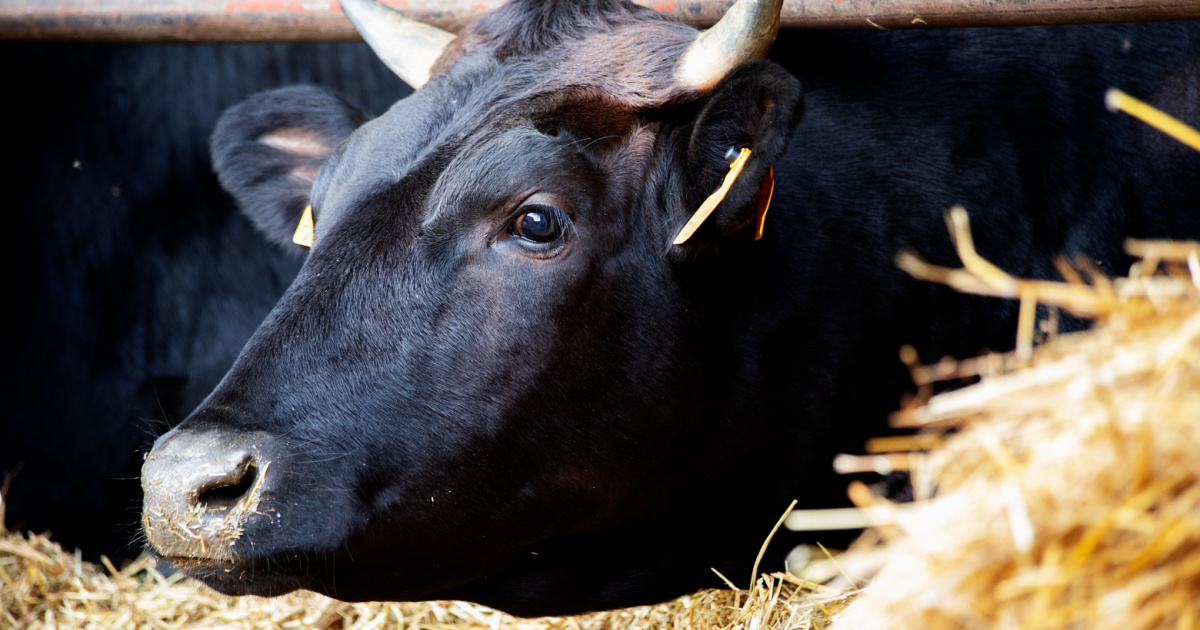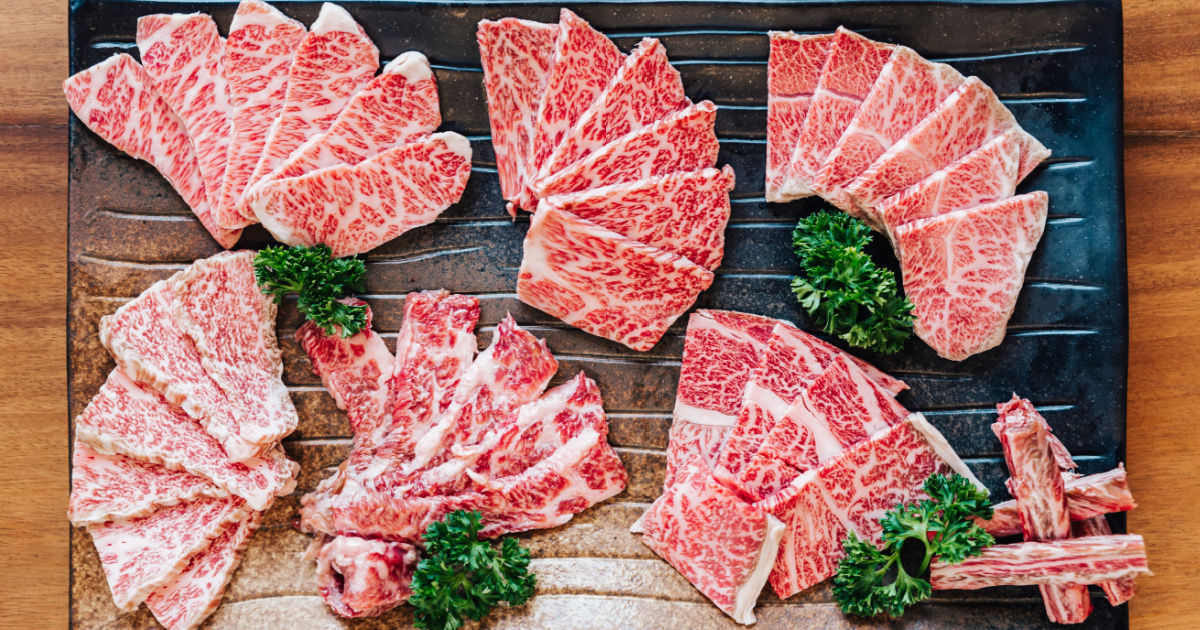What Is American Wagyu?
American Wagyu Beef: The Perfect Combination of Flavor and Tenderness
If you are a foodie, you must have heard about American Wagyu beef, a premium quality beef that has taken the culinary world by storm. American Wagyu beef, or Kobe-style beef, is a crossbreed between Japanese and American Angus cattle, resulting in delicious and tender meat.
Table of Contents
-
Introduction:
-
The History
-
Breeding of American Wagyu cattle
-
American Wagyu vs. Japanese Wagyu beef
-
The Culinary Experience of American Wagyu beef
-
The Nutritional Value of American Wagyu beef
-
The Sustainability of American Wagyu beef
-
The Future of American Wagyu beef
-
How to Cook American Wagyu beef
-
Where to Buy American Wagyu beef
-
American Wagyu beef and the Environment
-
The Role of American Wagyu beef in the Food Industry
-
Frequently Asked Questions (FAQs)
-
What makes American Wagyu beef different from other types of beef?
-
Is American Wagyu beef healthier than other beef?
-
How should I cook American Wagyu beef?
-
Can I find American Wagyu beef outside the United States?
-
Is American Wagyu beef sustainable?
-
Introduction: What is American Wagyu beef?
American Wagyu beef is a type of beef that is highly prized for its intense marbling and exceptional tenderness. This beef comes from crossbreeding Japanese Wagyu cattle, renowned for their rich flavor and tender meat, with American Angus cattle, known for their robustness and meat quality. The result is a unique beef rich in flavor, texture, and juiciness, making it a favorite among chefs, foodies, and meat lovers.
The History of American Wagyu beef
The history of American Wagyu beef dates back to the 1980s when Japanese Wagyu cattle (Japanese Shorthorn, Japanese Brown, Japanese black, and Japanese Polled) were imported to the United States to improve the quality of American beef. The first crossbreed between Japanese cattle and American Angus cattle took place in the mid-1990s, resulting in the birth of the American Wagyu breed. Since then, American Wagyu beef has become increasingly popular among American consumers and chefs, who appreciate its unique flavor and tenderness.
Breeding this type of cattle requires a delicate balance between Japanese Wagyu and American genetics to produce the desired marbling and tenderness. They are typically bred using artificial insemination, which involves selecting the best Japanese Wagyu and American Angus cattle to create a superior crossbreed. The breeding process takes several years to produce a mature animal, requiring close attention to the animal's diet, exercise, and overall health.
American Wagyu vs. Japanese Wagyu beef

While American Wagyu beef is similar to Japanese Wagyu in flavor and tenderness, the two differ. Japanese Wagyu beef has a higher fat content, making it more tender and flavorful than American.
However, American Wagyu beef has a more robust and meaty flavor, making it an excellent choice for dishes that require a more assertive, rich flavor. Japanese Wagyu beef is the progenitor of the latter, and Japanese Wagyu cattle are some of the most pampered animals on the planet.
The Culinary Experience of American Wagyu beef
American Wagyu beef is a delight to cook with, as it is incredibly versatile and can be prepared using a wide range of cooking techniques.
Its rich marbling ensures that it remains tender and juicy, even when cooked to well-done. American Wagyu beef is perfect for grilling, roasting, and pan-frying.
The Nutritional Value of American Wagyu beef

American Wagyu beef is not only delicious but also nutritious. It is a good source of high-quality protein, iron, zinc, and vitamin B12.
However, it is also high in fat and calories, so it should be consumed in moderation, especially if you watch your weight.
The Sustainability of American Wagyu beef
Sustainability is essential in the food industry, and American Wagyu beef is no exception. While it is a premium product, it is also resource-intensive, requiring a lot of feed, water, and land to produce.
However, some American Wagyu farmers are adopting sustainable practices, such as rotational grazing and regenerative agriculture, to reduce their environmental impact and preserve natural resources.
The Future of American Wagyu beef
The future of American Wagyu beef looks bright as demand for this premium product continues to grow. However, challenges are ahead, such as improving sustainability, animal welfare, and food safety practices.
Nevertheless, American Wagyu beef is a testament to the ingenuity and innovation of the American food industry, which continues to push the boundaries of culinary excellence.
How to Cook American Wagyu beef
Cooking American Wagyu beef requires skill and attention to detail, but it is worth the effort. Here are some tips on how to cook American Wagyu beef:
-
Bring the meat to room temperature before cooking
-
Season it with salt and pepper, but avoid using too many spices that could overpower the beef's flavor
-
Use a high-heat cooking method, such as grilling or pan-frying, to sear the meat and seal it in the juices
-
Cook the meat to your desired level of doneness, but avoid overcooking it, as this can cause the meat to become rigid and dry
-
Let the meat rest for a few minutes before slicing it to allow the juices to redistribute evenly.
Where to Buy American Wagyu beef
If you want to try American Wagyu beef, you can buy it online or from specialty meat markets. However, be prepared to pay a premium price, as American Wagyu beef is one of the most expensive types on the market.
American Wagyu beef and the Environment
As mentioned earlier, American Wagyu beef production can significantly impact the environment.
However, some American Wagyu farmers are taking steps to reduce their carbon footprint, such as using renewable energy sources, reducing waste, and conserving water.
By adopting sustainable practices, American Wagyu farmers can help protect the environment while producing high-quality beef.
The Role of American Wagyu beef in the Food Industry
It has played an essential role in the food industry, introducing a new flavor and tenderness to American cuisine. It has also created a niche market for high-end beef products, which has helped stimulate innovation and creativity in the food industry.
Overall, American Wagyu beef is a testament to the American entrepreneurial spirit and its ability to adapt and innovate in response to changing market demands.
Frequently Asked Questions (FAQs)
-
What makes American Wagyu beef different from other types of beef?
American Wagyu beef is different from other types of beef due to its intense marbling and exceptional tenderness.
-
Is American Wagyu beef healthier than other beef?
Regarding nutritional content, there is no significant difference between American Wagyu beef and other types of beef.
-
How should I cook American Wagyu beef?
American Wagyu beef is best cooked using high-heat cooking methods, such as grilling or pan-frying, searing the meat, and sealing the juices.
-
Can I find American Wagyu beef outside the United States?
American Wagyu beef is primarily produced in the United States but can also be found in other countries such as Canada and Australia.
-
Is American Wagyu beef sustainable?
While American Wagyu production can have a significant environmental impact, some American Wagyu farmers are adopting sustainable practices, such as rotational grazing and regenerative agriculture, to reduce their environmental impact and preserve natural resources. Therefore, American Wagyu beef can be sustainable if produced using these practices.
-
What's the difference between American Wagyu and Japanese Wagyu?
Japanese Wagyu beef has a higher fat content, making it more tender and flavorful than American.
Conclusion
American Wagyu beef is a premium product that has overtaken the culinary world. Its intense marbling and exceptional tenderness make it a favorite among chefs, foodies, and meat lovers. While its production can have a significant environmental impact, some American Wagyu farmers are adopting sustainable practices to reduce their carbon footprint and preserve natural resources. Overall, American Wagyu beef is a testament to the American entrepreneurial spirit and its ability to innovate and adapt to changing market demands.
;)
;)
